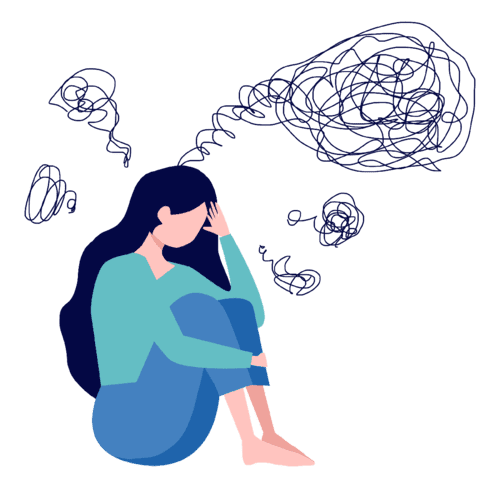Crippling OCD Assessment
Free Crippling OCD Assessment

What is Crippling OCD Assessment?
“Crippling OCD assessment” refers to evaluating the severity and impact of Obsessive-Compulsive Disorder (OCD) on an individual’s daily functioning. It involves assessing the degree to which obsessions (intrusive thoughts) and compulsions (repetitive behaviors) interfere with their ability to engage in normal activities, relationships, and well-being. This assessment helps determine the level of impairment and guides treatment decisions. Individuals with severe OCD may find their lives significantly disrupted, affecting work, social interactions, and mental health. Accurate assessment guides clinicians in tailoring interventions, such as therapy and medication, to alleviate distress and enhance quality of life for those struggling with debilitating OCD.
Who can benefit from this Crippling OCD Assessment?
The Crippling OCD Assessment can benefit individuals who struggle with severe Obsessive-Compulsive Disorder (OCD) symptoms that significantly impair their daily life and well-being. This tool is especially helpful for those experiencing debilitating obsessions and compulsions that hinder their ability to function, causing distress and isolation. The assessment provides a structured framework to understand the severity and impact of their condition, guiding them towards appropriate interventions like Cognitive Behavioral Therapy (CBT) and medication. It supports individuals in gaining insight, setting realistic goals, and collaborating with mental health professionals to regain control over their lives and mitigate the overwhelming effects of OCD.
Crippling OCD Assessment Accuracy
Assessing the accuracy of crippling OCD requires thorough evaluation by a qualified mental health professional. Accurate diagnosis involves considering the severity of obsessions and compulsions, their impact on daily life, and ruling out other conditions. Psychological assessments, clinical interviews, and validated assessment tools are utilized. An accurate assessment guides appropriate treatment, such as therapy (e.g., ERP) and possibly medication. Early intervention enhances prognosis.
Types of Crippling OCD Assessment
Yale-Brown Obsessive Compulsive Scale (Y-BOCS):
This is one of the most widely used assessments for OCD severity. It measures the severity of obsessions and compulsions separately and also takes into account the time spent on these symptoms. The Y-BOCS is often used to track changes in symptom severity over the course of treatment.
Obsessive-Compulsive Inventory-Revised (OCI-R):
This assessment evaluates the presence and severity of various types of OCD symptoms, including washing, checking, ordering, obsessing, hoarding, and mental compulsions.
Clinical Global Impression – Severity (CGI-S):
This is a simple assessment used to rate the overall severity of a person’s condition. It’s not specific to OCD but is often used as a part of a broader assessment.
Dimensional Yale-Brown Obsessive-Compulsive Scale (DY-BOCS):
Unlike the traditional Y-BOCS, the DY-BOCS assesses the frequency, distress, and resistance associated with each obsession and compulsion separately. It offers a more nuanced picture of OCD symptoms.
Children’s Yale-Brown Obsessive Compulsive Scale (CY-BOCS):
This assessment is specifically designed for assessing OCD symptoms in children and adolescents. It takes into account age-appropriate symptoms and experiences.
Maudsley Obsessional-Compulsive Inventory (MOCI):
This self-report questionnaire assesses a broad range of obsessive-compulsive symptoms. It’s often used for research purposes.
Handling Crippling OCD Issues
Crippling OCD can be particularly challenging, but with the right support and strategies, it is possible to manage and improve your quality of life. Here are some additional suggestions for handling severe OCD issues:
- Specialized Treatment: Seek out a mental health professional who specializes in treating severe OCD. Therapists with experience in Exposure and Response Prevention (ERP) therapy and Cognitive Behavioral Therapy (CBT) can provide targeted interventions.
- Intensive Treatment Programs: Consider enrolling in an intensive outpatient or inpatient treatment program if your OCD is severely impacting your daily functioning. These programs provide structured and intensive therapy over a period of time.
- Medication Evaluation: Work closely with a psychiatrist to explore medication options that may alleviate the symptoms of severe OCD. Certain medications, especially SSRIs, can be helpful in managing obsessive thoughts and reducing anxiety.
- Safety Behaviors: Identify and address any safety behaviors that you engage in to reduce anxiety. These behaviors might provide temporary relief but can maintain the cycle of OCD. Gradually reducing and eliminating these behaviors with the guidance of a therapist can be beneficial.
- Suicide Prevention: If you’re experiencing severe distress or suicidal thoughts due to your OCD, it’s crucial to reach out for help immediately. Contact a mental health crisis line, a therapist, psychiatrist, or go to the nearest emergency room.
- Support Groups: Joining a support group for individuals with OCD can provide a sense of community, understanding, and validation. Sharing experiences and coping strategies with others who are facing similar challenges can be incredibly helpful.
- Holistic Approaches: Incorporate stress-reduction techniques like yoga, deep breathing exercises, and progressive muscle relaxation into your routine to manage anxiety and promote relaxation.
- Structured Routine: Creating a structured daily routine can help provide a sense of stability and predictability, which can be particularly comforting when dealing with severe OCD.
- Practice Self-Compassion: Be kind to yourself and acknowledge the effort you’re putting into managing your OCD. Remember that recovery is a process, and setbacks are a natural part of the journey.
- Involve Loved Ones: Educate your loved ones about your condition so they can provide support and understand your struggles. Family and friends can be valuable allies in your recovery.
- Goal Setting: Set realistic goals for your treatment and recovery. Break down your goals into smaller, achievable steps. Celebrate your progress along the way.
- Professional Collaboration: Ensure that your therapist, psychiatrist, and any other mental health professionals you’re working with are communicating and collaborating to provide you with comprehensive care.
It’s important to remember that you’re not alone in this journey. Reach out for help, whether from mental health professionals, support groups, or loved ones. Recovery from severe OCD is possible with the right combination of therapeutic interventions, support, and personal dedication.

